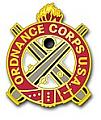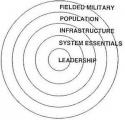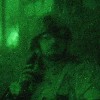
Originally Posted by
Jobu

Greetings, SWC. I am currently working on a related SAW thesis and have hit a snag on nailing down what “intelligence-led operations” really are. My hope is to generate a discussion that can tap into the conventional wisdom on the concept, as well get some thoughts on my ideas for expanding it. Anyway, on to my points…
The term “intelligence-led operations” is frequently used to describe our activities in Iraq and Afghanistan, yet one would be hard-pressed to find a single, overarching definition or theory behind it. A few sources on “intelligence-led policing” and the FM 3-24 discussions on “intelligence-driven operations” are the closest thing I’ve found to a theory. The following points are my best attempt to paraphrase the theory from these sources.
Intelligence-led operations…
- Are operations driven by intelligence, rather than vice versa.
- Subsequently produce the intelligence that drives further operations.
- Require intelligence personnel to take a pro-active, rather than passive, role in collecting intelligence.
- Requires operators to be intelligence collectors.
As I read the verbiage behind these points, I kept asking myself if there’s really anything new or different here from the typical intelligence-operations relationship. Using the first two points, one could argue that “reconnaissance pull” and the targeting process are forms of intelligence-led operations. The last two points should be standard operating procedure for any type of operation/environment.
If there’s nothing new here, has the term become a euphemism for tactical-level operations based on something other than a developed course of action with well-defined decision points and supporting intelligence requirements? Are these operations with no clear linkage to the campaign objectives and endstate? Although there may be an element of truth to these questions, I don’t believe they or the points above accurately describe the concept as we know and practice it.
Here’s my shot at a better definition/theory: intelligence-led operations are purposeful interactions with adversary systems for the purpose of gaining understanding and leverage. They are therefore applicable to any type of campaign and should be incorporated into the operational design, not simply left to the tactical level. Now here’s what I think is the most important part…to fully incorporate intelligence-LED (vs. intelligence-DRIVEN) operations into a campaign design, intelligence must be its own logical line of operations. Thus, classic fire and maneuver operations must sometimes be designed to support intelligence, instead of vice versa.
These last two points have been admittedly borrowed from LG William Boykin and Shimon Naveh, respectively. This ops/intel paradigm shift they’re describing, I believe, is necessary to conduct “systems thinking” at the operational level.
That's where I'm at so far. Hopefully I've made sense. I'm looking forward to the discussion.
V/R,
Jason Brown











Bookmarks